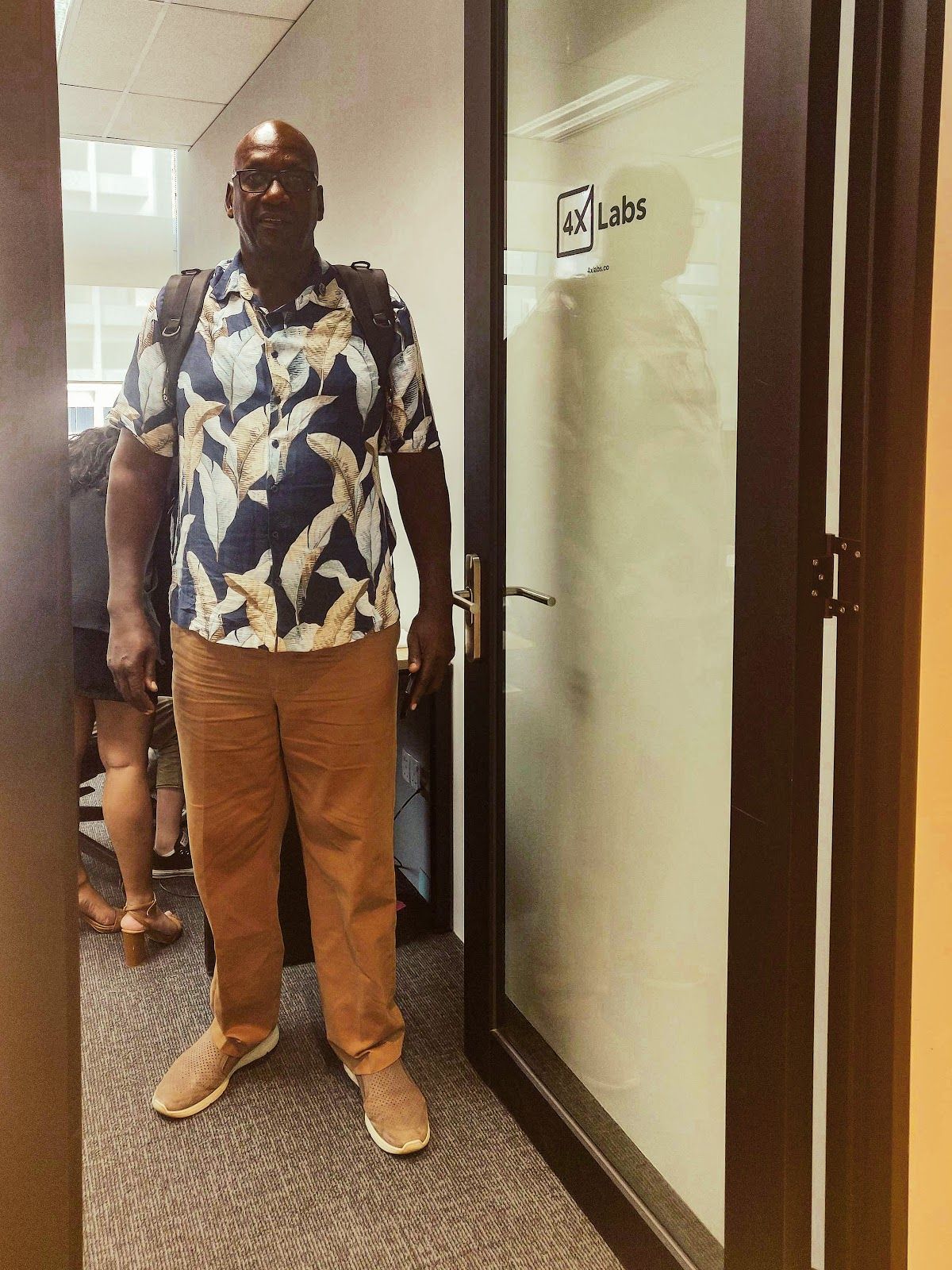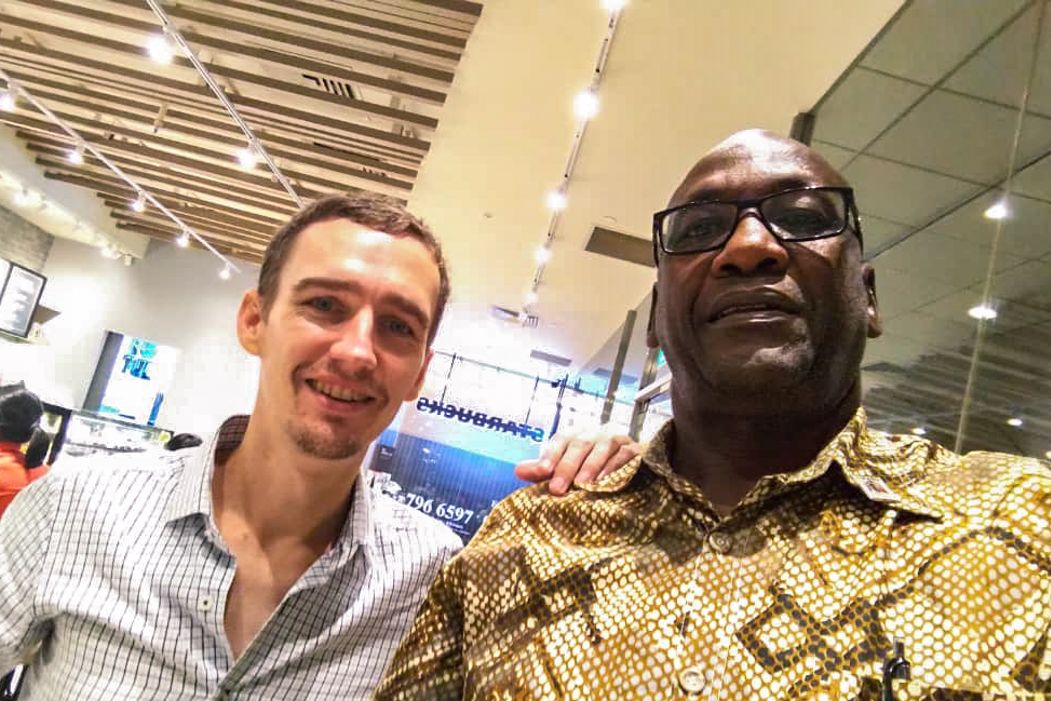Fintech in Africa - An Interview with the Chairman of the Uganda Forex Bureau & Money Remittance Association
Fintech in Uganda
In our first article on fintech in Africa, we provided an overview of the fintech landscape, and highlighted some key examples of the most successful fintech players driving financial inclusion such as M-PESA. In this second article, we are taking a closer look at fintech in Uganda, particularly pertaining to forex bureaus.
There are approximately 71 fintechs in Uganda of which 47% are in the payments, 23% are in bank infrastructure, 16% in investment and savings, 7% in lending, 5% in insurance and 2% in markets. The transformative power of fintech in driving access to formal financial services is evident with M-PESA in Kenya. Access to formal financial services in Uganda stands at 58%, and Biz4x intends to improve this statistic by partnering with the Uganda Forex Bureau & Money Remittance Association to bring about digital transformation in the money services businesses industry in Uganda.
Driving Financial Inclusion Through Forex Bureaus
By allowing forex bureaus to leverage Biz4x’s latest technology, Biz4x intends to bring to Uganda forex bureaus, new opportunities and access to technological innovations that traditionally have been possible only for larger enterprises. The underbanked or unbanked rely on forex bureaus for access to essential financial services such as currency exchange and remittance, as they are often located in areas where the unbanked can access, unlike official bank branches or ATMs (think M-PESA and their agent locations). At Biz4x, we are partnering with the association to modernise Uganda’s forex bureaus so they adapt to digital payments and help transition the unbanked in society to these digital modes of payment.
Forex bureaus, many of which provide remittance services, are crucial to driving financial inclusion as they have unique access to customers. Massimo Cirasino, Head of the Payment Systems Development Group, World Bank wrote that “MTOs (money transfer operators) are crucial to the international remittances industry and provide relevant services for many migrants and their families. They also help extend reach and access to remittances and other financial services since they operate in many remote locations where banks aren’t present.”
Mr Philip Katamba, Chairman of the Uganda Forex Bureau & Money Remittance Association
As part of the process to onboard the 260 forex bureaus in Uganda to Biz4x, we sat down with Chairman of the Uganda Forex Bureau & Money Remittance Association, Mr Philip Mike Katamba, to better understand the challenges faced by forex bureaus in this era, and their requirements in an age where compliance and live data have become increasingly important. Prior to this meeting Biz4x had successfully introduced the Biz4x solution at the annual general meeting of the association.
Mr Katamba is not only the Chairman of the Uganda Forex Bureau & Money Remittance Association, he is also the CEO of City Forex in Uganda, which has 3 branches in the country. Mr Katamba is a trained financial analyst who has spent the last 35 years dealing with issues of FX trading in the Uganda market, of which 27 years were spent as a regulator in the Bank of Uganda. We asked Mr Katamba to elaborate further on his role at the association and the work the association has done.

“I have a very cordial relationship with the regulator and my passion has always been to see efficiency in the sector. We aim as an association to build confidence from the public and stakeholders. I believe that having been a regulator, I am in a position to advocate or lobby for policies that meet best business and financial practices so we come up with a win-win situation. I am very passionate about this sector as an individual and my contributions so far. I aim to make more contributions in this sector.”
“The Uganda Forex Bureau & Money Remittance association has done a good job over time. We have formalised our relationship with the Bank of Uganda, and signed an MOU. We are basically a lobby group trying for policy changes that promote secure transactions in the economy, transactions where the clients get their money in a safe way at a lesser cost. Through a holistic approach to financial services, transactions can be very secure, by limiting the amount of cash and depositing your money in your phone or bank account.”
Fintech and Forex in Uganda
Mr Katamba further spoke at length with Biz4x on the state of fintech in Uganda with regards to the forex industry.
“The opportunities for fintech in Uganda are great. Worldwide, fintech has taken over for the provision of financial services. Today, you can sit here and do business worldwide, it is secure and safe although there is still opportunity for fintech to bring down the cost of the Internet and to increase the number of people with access to online services.”
“Mobile banking and agent banking in particular has done a good job, powering a growth in financial inclusion. There are currently 5 million people with mobile money accounts versus 2 million in bank accounts with MTN being the leading mobile provider. This is out of a population of 41 million in Uganda. We believe our association members can quickly contribute to financial inclusion in the economy. Not just as money changers, but as providers of financial services.”

Challenges in the Uganda Market
When asked about the specific challenges facing forex bureaus in Uganda, Mr Katamba answered,
“In most of the African countries, there is the black market. Right now the biggest challenge in the Uganda market is the unauthorized dealers. Unlicensed dealers may be taking up to 20-30% of transaction volumes. This poses a risk to the country in general. The regulators have taken it upon themselves to deal with unlicensed unauthorised forex dealers. A task force has been put in place and it is being financed by the principal regulator. We are blacklisted as a country in terms of compliance. The anti-money laundering act has been revised. There is an increased cost of doing business and a focus on improving financial services and financial inclusion.”
“Forex bureaus in Uganda are concerned about efficiency through automation, and leveraging innovation to provide financial services known as fintech. We believe for successful innovation, we need security, secure transactions, a reduction in the cost of business in this digital era. We need to receive credible and timely information which is critical in policy formulation.”
“Way back in the 1990s to 2001, we had manual receipts and we had to submit returns. Today, we submit returns electronically. The regulators are trying to improve their use of digital methods to meet regulatory requirements. This implies that all players and members have to be compliant, which is why we are out looking for better money management systems that would further improve all our operations. We believe in improving digital initiatives which will in turn improve policy formulation. One of the challenges I foresee is when we are offline. We need to think of ways and means to improve coverage of the Internet.”
A Platform for Automation and Efficiency
Mr Katamba further elaborated on how the association works with forex bureau members to deal with compliance and other modern day challenges.
“The association is a member of the private sector in Uganda. Part of our strategy is to have collaboration with our sister organisation in Kenya. We are looking at benchmarking and building operations. We work closely with the regulator. We have a quarterly meeting and we conduct training with regulators. All is geared to improve efficiency in financial services.”
“We looked for credible service providers that would meet expectations of our members. We need one system that can do all the automation - my business concern is about efficiency. We identified two service providers, one of which was Biz4x. They made a presentation to the board on 25 June and proceeded to present Biz4x to all members. We did ask our members to evaluate the presenters on the system. Overall, our members voted for Biz4x as a better service provider. Since then, we have started an initiative to see how we can collaborate with Biz4x to provide a solution for our business activities in a timely and affordable manner.”

Biz4x was specifically built for anti-money laundering, that was one of the reasons we opted to kickstart the collaboration and strategise together. It is a user-friendly and affordable software for members. I have had the opportunity to lead this initiative and personally convinced our company, City Forex Bureau to take the lead. I believe that come Q1 2020, we should have a workable solution. Suffice to say, we have found the software very robust in terms of compliance and live rates which is key to the economy. With enhancements to financial reporting, we believe it will go a long way.”

Fintech and the Future of Uganda’s Forex Bureaus
To conclude, Mr Katamba shared some thoughts about fintech and the future of the money services business industry.
“As a lobby group, we encourage members to embrace the fintech involvement with capacity-building initiatives, equipping members with relevant skills to meet the changing business environment. We continuously train our members to ensure that they minimise risks, especially those concerned with compliance and operations. We encourage members to embrace fintech involvement for business growth as well as best practices in the digital era. We also encourage our members to collaborate with due synergies.”
“There has been this fear that the more we do digital, we shall be pushed out of business. My message on this is very clear, retrain and resell to meet the demands of the sector. We need to move in that direction and work smarter. Of course the opportunity outweighs the threat. We have seen growth in the fintech area. It reminds me of what Winston Churchill said, “Change is the price of survival.” So we have to change and survive in the market. The Biz4x system is very strong on compliance, and it also has live rates which is very critical for decision-making. Biz4x is going to bring in the international aspect and the best practices for Uganda.”

We certainly look forward to a fruitful collaboration with Mr Philip Katamba and the Uganda Forex Bureau & Money Remittance Association in the digital transformation of Uganda’s forex bureaus in the coming months and will share more news about this initiative in time to come!




